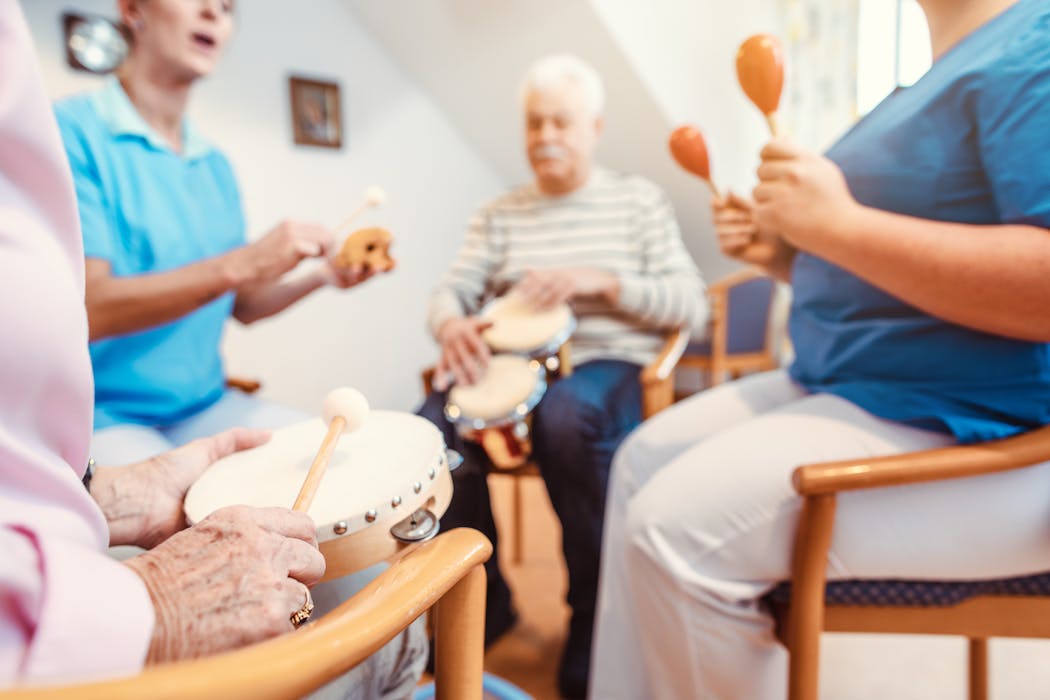In the final stages of life, comfort and peace become paramount for patients facing terminal illnesses. End-of-life care focuses on providing physical, emotional, and spiritual support to individuals as they approach the end of their lives. It is essential to create an environment that promotes a sense of calm and tranquility, allowing patients to experience a sense of dignity and control during this challenging time. Comfort and peace are not only crucial for the patients themselves but also for their families and caregivers, who are also navigating the emotional and psychological challenges of witnessing a loved one’s decline. Providing a peaceful and comfortable environment can help alleviate the stress and anxiety that often accompany end-of-life care, allowing patients and their families to focus on making the most of their remaining time together.
Furthermore, comfort and peace are essential components of palliative care, which aims to improve the quality of life for patients facing life-limiting illnesses. By prioritizing comfort and peace, healthcare providers can help patients manage their symptoms and maintain a sense of well-being, even as they approach the end of their lives. This holistic approach to end-of-life care recognizes the importance of addressing not only the physical symptoms of illness but also the emotional and spiritual needs of patients and their families. Ultimately, creating a peaceful and comfortable environment is essential for promoting a sense of dignity, respect, and compassion for individuals facing the end of their lives.
Understanding the Role of Music Therapy in End-of-Life Care
Music therapy has emerged as a valuable tool in end-of-life care, offering a unique way to promote comfort, peace, and emotional well-being for patients facing terminal illnesses. Music has the power to evoke memories, emotions, and connections, making it a powerful medium for individuals navigating the complexities of end-of-life care. Music therapy involves the use of music interventions to address the physical, emotional, cognitive, and social needs of individuals, providing a non-invasive and non-pharmacological approach to symptom management and emotional support.
Music therapy in end-of-life care is not limited to passive listening; it can also involve active participation in creating music, songwriting, or improvisation. This active engagement with music can provide patients with a sense of agency and self-expression, allowing them to communicate their emotions and experiences in a meaningful way. Additionally, music therapy can help patients and their families create lasting memories and connections through shared musical experiences, fostering a sense of closeness and comfort during a challenging time. By understanding the role of music therapy in end-of-life care, healthcare providers can better support patients and their families in finding moments of joy, connection, and peace amidst the difficulties of terminal illness.
The Impact of Music Therapy on End-of-Life Patients
The impact of music therapy on end-of-life patients is profound, offering a range of physical, emotional, and psychological benefits that can enhance their quality of life during this challenging time. Music has the power to evoke memories, emotions, and connections, providing patients with a sense of comfort, joy, and peace as they navigate the complexities of terminal illness. For many patients, music therapy offers a way to express themselves, connect with loved ones, and find moments of respite from pain and anxiety.
Research has shown that music therapy can help reduce symptoms such as pain, anxiety, depression, and shortness of breath in end-of-life patients. By engaging with music, patients can experience a sense of relaxation and distraction from their symptoms, allowing them to find moments of relief and comfort. Additionally, music therapy can provide patients with a sense of control and agency in their care, empowering them to make choices about the music they listen to or create. This sense of empowerment can be particularly meaningful for individuals facing terminal illness, allowing them to maintain a sense of autonomy and dignity as they approach the end of their lives.
How Music Therapy Helps Alleviate Pain and Anxiety in End-of-Life Patients
One of the most significant benefits of music therapy in end-of-life care is its ability to alleviate pain and anxiety in patients facing terminal illnesses. Music has been shown to have a direct impact on the brain’s perception of pain, with studies demonstrating that listening to music can reduce pain intensity and improve pain tolerance in individuals with chronic or acute pain. For end-of-life patients experiencing physical discomfort, music therapy offers a non-pharmacological approach to pain management that can complement traditional medical interventions.
In addition to its impact on physical symptoms, music therapy has been shown to reduce anxiety and promote relaxation in end-of-life patients. The calming effects of music can help patients manage feelings of fear, uncertainty, and distress, providing them with a sense of comfort and peace during this challenging time. By addressing both physical and emotional aspects of pain and anxiety, music therapy offers a holistic approach to symptom management that can enhance the overall well-being of end-of-life patients.
Personalized Music Therapy: Tailoring the Experience for Each Patient
Personalized music therapy is an essential aspect of providing effective end-of-life care, as it allows healthcare providers to tailor the musical experience to meet the unique needs and preferences of each patient. Every individual has their own musical preferences, memories, and associations that can be harnessed to create meaningful and therapeutic musical experiences. By taking the time to understand each patient’s musical background, cultural influences, and personal connections to music, healthcare providers can create personalized music therapy interventions that resonate with the patient on a deep level.
Personalized music therapy may involve creating playlists of favorite songs or genres, engaging in live musical performances or sing-alongs, or even composing original music that reflects the patient’s experiences and emotions. By involving patients in the selection and creation of music, healthcare providers can empower them to take an active role in their care, fostering a sense of agency and self-expression. Personalized music therapy not only enhances the therapeutic benefits of music but also allows patients to create lasting memories and connections through shared musical experiences.
The Benefits of Music Therapy for Family Members and Caregivers
While much attention is given to the impact of music therapy on end-of-life patients themselves, it is essential to recognize the benefits that music therapy can offer to family members and caregivers as well. The emotional toll of caring for a loved one facing terminal illness can be overwhelming, leading to feelings of stress, anxiety, grief, and burnout. Music therapy provides an opportunity for family members and caregivers to find moments of respite, connection, and emotional support during this challenging time.
Music therapy can help family members and caregivers manage their own emotions and find ways to connect with their loved ones through shared musical experiences. By participating in music therapy sessions alongside their loved ones or engaging in musical activities independently, family members and caregivers can find moments of joy, comfort, and connection amidst the difficulties of end-of-life care. Additionally, music therapy can provide family members with a way to express their emotions and experiences in a meaningful way, fostering a sense of understanding and support within the caregiving relationship.
Integrating Music Therapy into End-of-Life Care: Best Practices and Considerations
Integrating music therapy into end-of-life care requires careful consideration of best practices and ethical considerations to ensure that patients receive high-quality care that meets their unique needs. Healthcare providers should work closely with board-certified music therapists who have specialized training in working with individuals facing terminal illness. These professionals can assess each patient’s needs, preferences, and abilities to create personalized music therapy interventions that are safe, effective, and meaningful.
Furthermore, healthcare providers should consider the cultural, spiritual, and religious beliefs of each patient when integrating music therapy into end-of-life care. Music holds deep cultural significance for many individuals, and it is essential to respect these traditions while providing therapeutic musical experiences. Additionally, healthcare providers should be mindful of any potential barriers to accessing music therapy services, such as financial constraints or logistical challenges. By addressing these considerations proactively, healthcare providers can ensure that all patients have access to the benefits of music therapy as part of their end-of-life care.
In conclusion, comfort and peace are essential components of end-of-life care that promote dignity, well-being, and compassion for individuals facing terminal illness. Music therapy offers a unique way to promote these qualities by providing patients with opportunities for self-expression, connection, and emotional support through personalized musical experiences. By understanding the impact of music therapy on end-of-life patients and their families, healthcare providers can integrate this valuable intervention into their care practices effectively. Through personalized music therapy interventions that address the unique needs and preferences of each patient while considering best practices and ethical considerations healthcare providers can enhance the quality of life for individuals facing terminal illness while promoting comfort peace dignity during this challenging time.
Find out how Torongo Therapyplus can help you with your needs. Get in touch with us at smile@torongo.life, or call us on 02 8809 9965.































